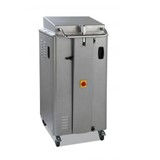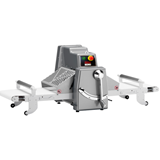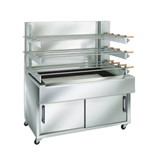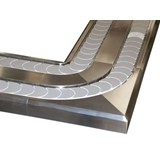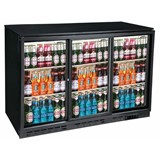The likes of Gordon Ramsay have presented kitchen life as career hell, a world full of boiled tempers, pressure-cooked egos and side dishes of extremely fruity language. Others such as Jamie Oliver and the MasterChef series have done their best to portray kitchens in a less brutal light.
Whatever the realities, professional kitchens are not for the meek and even those at the bottom of the food preparation chain – kitchen hands – require thick skins and nimble fingers. Here then are a few ways to also give them cool heads.
Lay out their job ingredients
Nothing helps a kitchen hand do their job better than knowing their job. If left at the whim of chefs, wait staff and managers, all of whom want something done 'now' they'll pinball around the kitchen in a state of constant upheaval.
So give them the full spread of duties – washing dishes, cleaning benches and floors, taking out rubbish, sorting linen – and they'll have a rough map of their shift without any surprise detours to knock them off kilter.
Make sure there are no side orders
If a new kitchen hand's tour of duty is to include food preparation – washing, peeling, chopping, and even making some simple dishes – brief them at the start of their shift, not when the kitchen is in rush hour frenzy. If your chef has modelled themself on Gordon Ramsay, this won't work out well.
Go through the motions
Teach your kitchen hand good time in motion techniques. For example, let's say they're making fresh bread rolls for baking. The uninitiated will cut a bit of dough, roll it and stick it on a baking tray, repeat. It's much faster to do one motion at a time, then the next motion as there's no fiddling about picking up and putting down knives.
So get them to cut all the dough first, then shape it, then place it, and explain why. Also teach them the correct way to hold and use a knife. They'll appreciate the tips and your kitchen will appreciate the speed.
Teach them kitchen road rules
If your kitchen doesn't already have one, create a code to keep your staff safe and your kitchen hand from being attacked by a knife-wielding chef. 'Behind,' means behind you. 'Sharp,' means on the move with a knife. 'Hot,' means flying about with boiling water or oil.
Teach your kitchen hand to trust their judgement and to be decisive in their movements about the kitchen. Again, they can be unforgiving places so give as much as you can to get your kitchen hand cooking with rocket fuel from day one.
Overdo the concept of moderation
Restaurant people tend to work hard, play hard. So appeal to your kitchen hand's ambitions. Remind them that hangovers aren't generally clever things if you want to get ahead. Suggest that they will stand out for all the right reasons if they're not turning up to work every day feeling like death warmed up. And encourage them to take pride in their appearance and to keep their work areas clean, tidy and organised. All of it reflects back on them.
Get them onto main courses
Kitchen hands don't need any formal qualifications, but that's not to say they and your restaurant wouldn't benefit. A seriously skilled kitchen hand is an asset who can go places far loftier than the kitchen sink.
Kitchen operations courses and pre-apprenticeship courses in commercial cookery and patisserie are a great way to maximise potential and push your kitchen junior towards a more senior, long term role.







-160x160-state_article-rel-cat.png)


-160x160-state_article-rel-cat.png)
-160x160-state_article-rel-cat.png)

-160x160-state_article-rel-cat.png)
